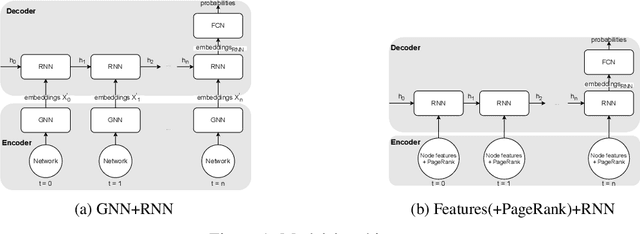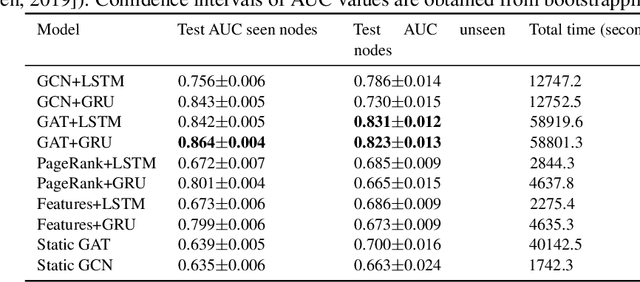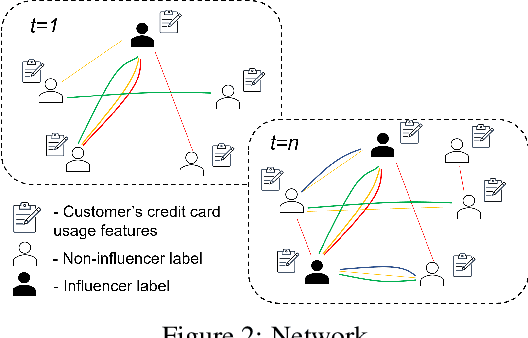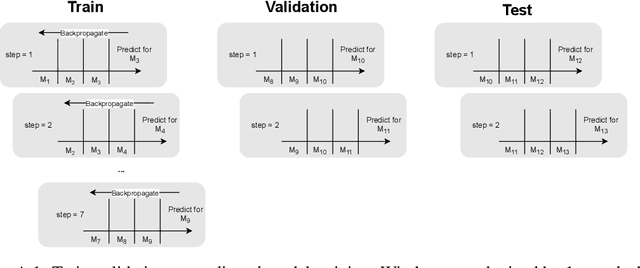Influencer Detection with Dynamic Graph Neural Networks
Paper and Code
Nov 15, 2022



Leveraging network information for prediction tasks has become a common practice in many domains. Being an important part of targeted marketing, influencer detection can potentially benefit from incorporating dynamic network representation. In this work, we investigate different dynamic Graph Neural Networks (GNNs) configurations for influencer detection and evaluate their prediction performance using a unique corporate data set. We show that using deep multi-head attention in GNN and encoding temporal attributes significantly improves performance. Furthermore, our empirical evaluation illustrates that capturing neighborhood representation is more beneficial that using network centrality measures.
* Conference workshop camera-ready paper - accepted at NeurIPS TGL
2022. 8 pages, 4 figures
View paper on
 OpenReview
OpenReview
 Add to Chrome
Add to Chrome Add to Firefox
Add to Firefox Add to Edge
Add to Edge